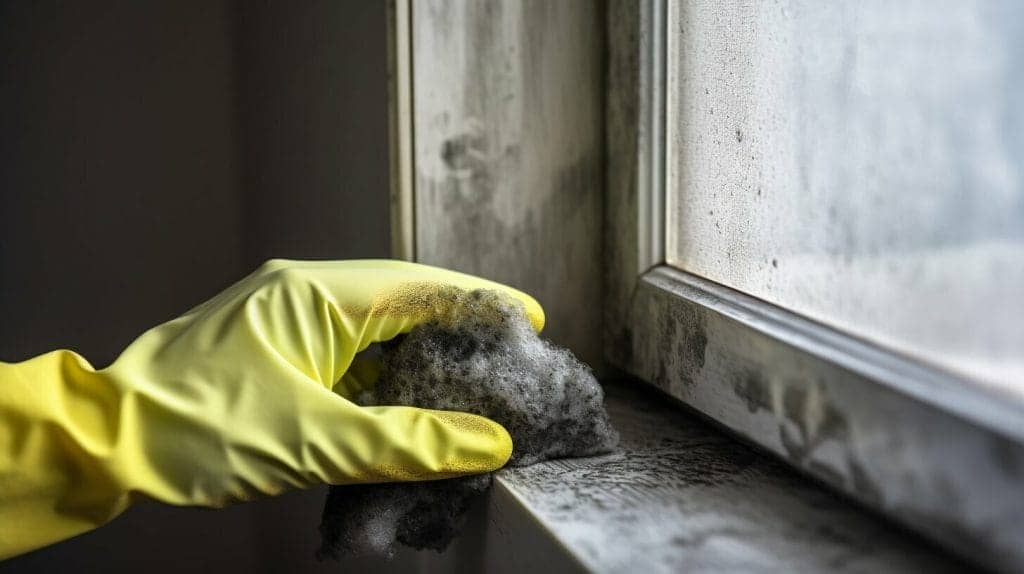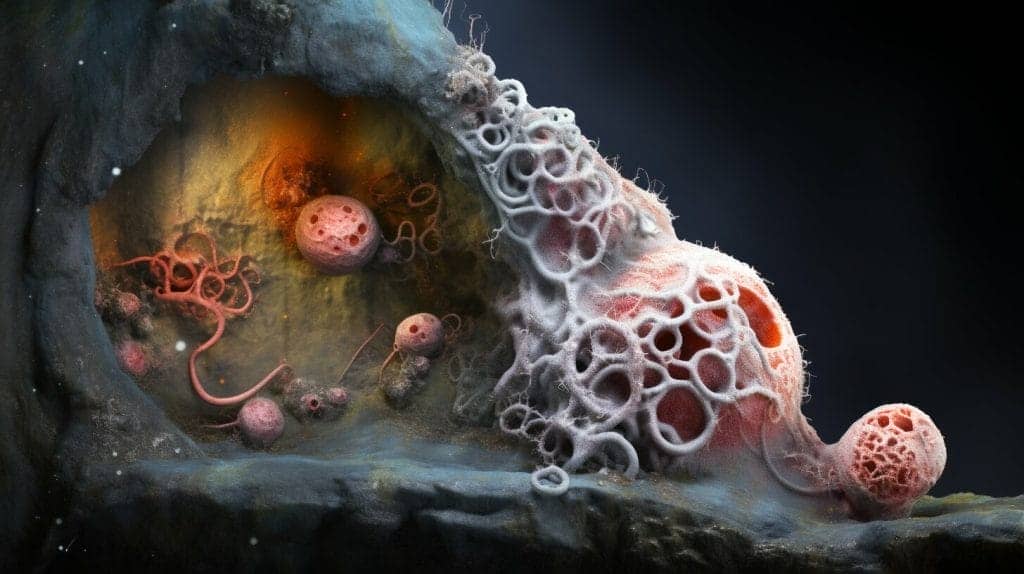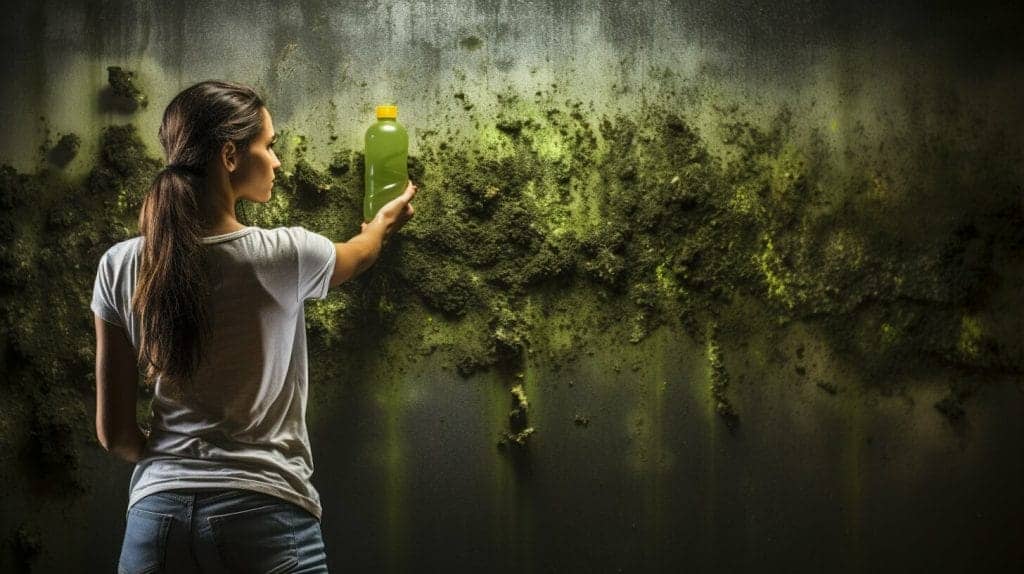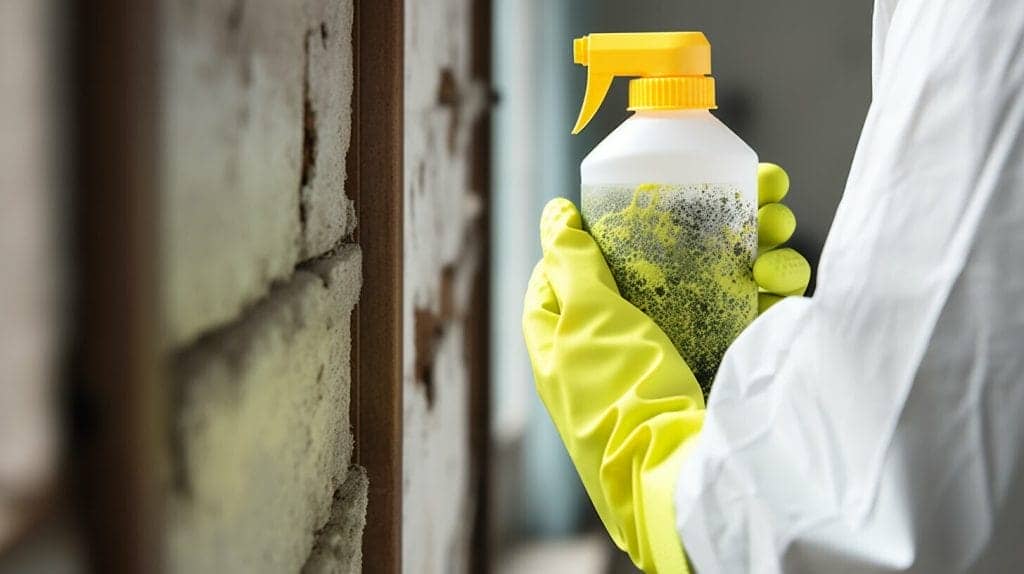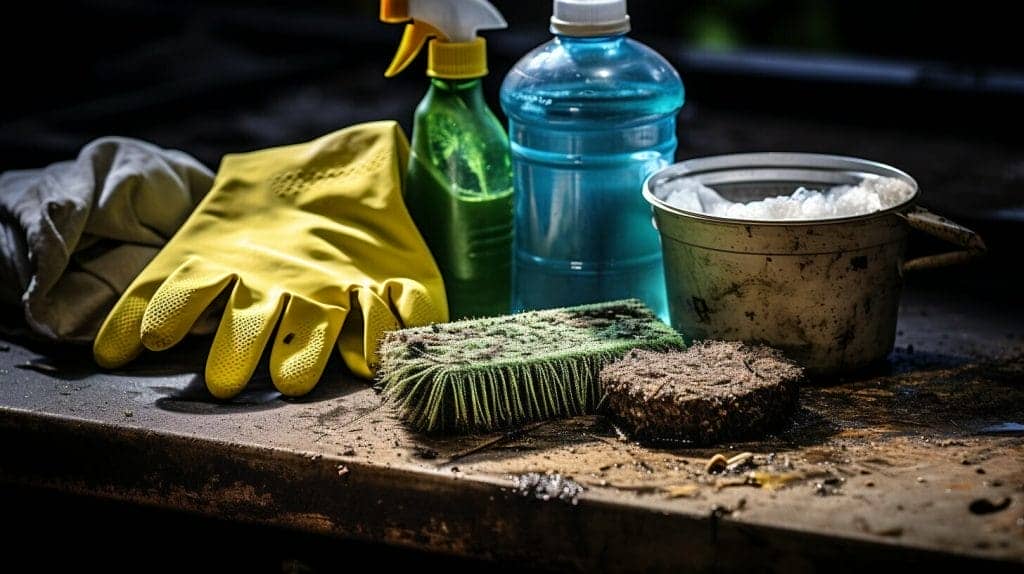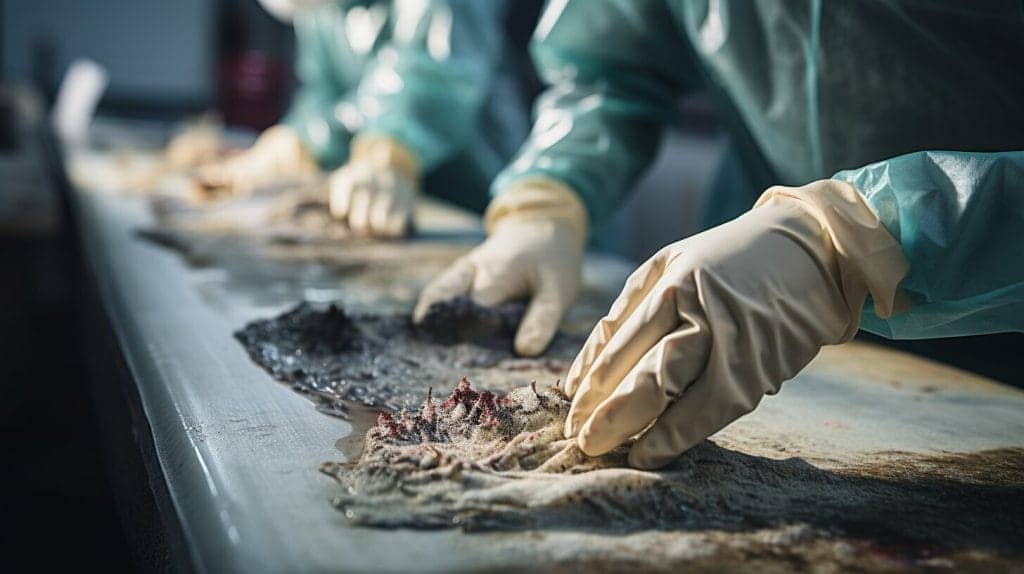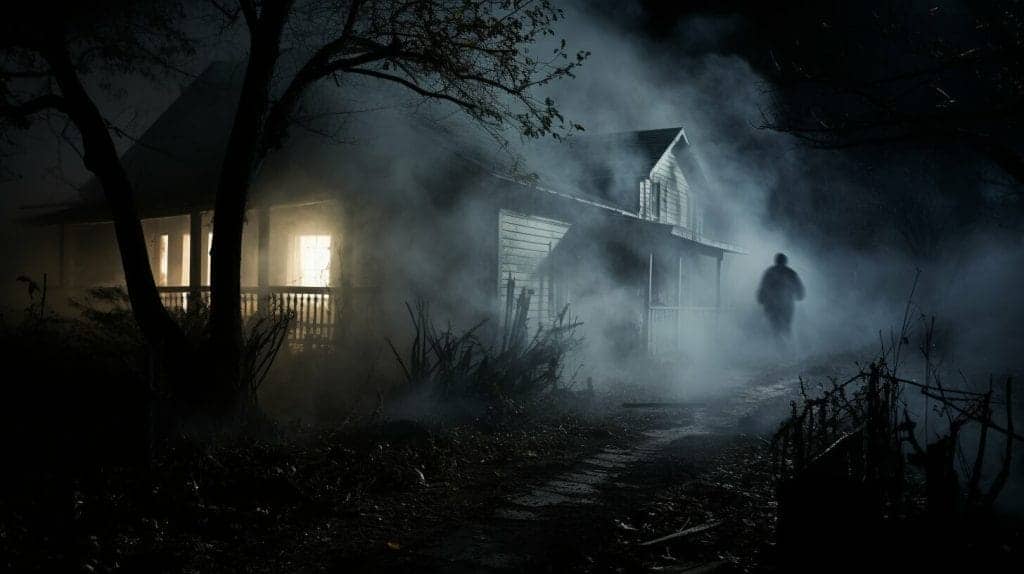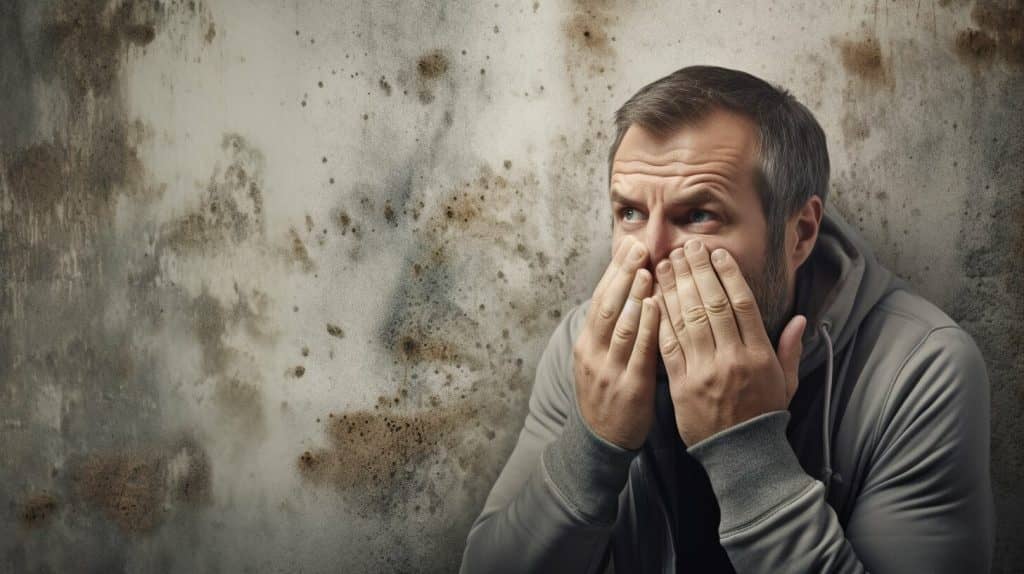Elderly individuals are at an increased risk of suffering from the ill effects of mold exposure. With weakened immune systems and underlying health conditions, seniors have a higher chance of developing serious health complications from mold infestations. This is why medical guidelines for mold exposure in elderly individuals are essential.
In this section, we will explore the potential health risks associated with mold exposure in older adults and the need for proper precautions and management. We will also discuss how elderly individuals may be more susceptible to mold sensitivity and the various symptoms and signs of mold toxicity.
Key Takeaways
- Elderly individuals are at a higher risk of developing serious health complications from mold exposure.
- Medical guidelines for mold exposure in elderly individuals are essential.
- Seniors are more susceptible to mold sensitivity.
- Proper precautions and management are necessary to prevent and manage mold exposure in older adults.
Understanding Mold Exposure in Elderly Individuals
Mold exposure can have detrimental health effects on individuals of all ages. However, elderly individuals may be more susceptible to the negative impacts of mold exposure due to weakened immune systems and underlying health conditions. As such, it’s crucial to understand how mold exposure can impact the elderly population and take necessary precautions to protect their health and wellbeing.
Mold Sensitivity in Older Adults
Older adults may be more sensitive to mold due to preexisting respiratory conditions, such as asthma or chronic obstructive pulmonary disease (COPD). Mold exposure can exacerbate these conditions, leading to worsening symptoms and potential respiratory infections.
Additionally, elderly individuals may experience symptoms such as fatigue, headaches, and brain fog as a result of mold exposure. Cognitive decline can also occur as a result of prolonged exposure to certain types of mold.
Signs of Mold Exposure in Elderly Individuals
The signs of mold exposure in elderly individuals can be similar to those in other age groups. Common symptoms may include coughing, wheezing, shortness of breath, nasal congestion, and eye irritation. It’s important to note that mold exposure symptoms can vary depending on the type of mold, the length of exposure, and the individual’s overall health.
If you suspect mold exposure in an elderly individual, it’s essential to seek medical attention promptly. A healthcare provider can evaluate the individual’s symptoms and recommend appropriate treatment.
Health Risks of Mold Exposure in Seniors
Mold exposure can pose serious health risks for elderly individuals. Seniors with weakened immune systems, respiratory issues, or underlying health conditions are particularly susceptible to the harmful effects of mold exposure. Mold can also exacerbate existing health conditions and cause new allergic reactions, infections, and respiratory issues.
The health risks of mold exposure in seniors include:
| Health Risks | Description |
|---|---|
| Respiratory issues | Mold spores can cause or worsen asthma, bronchitis, and other respiratory conditions, leading to difficulty breathing, coughing, and wheezing. |
| Allergies | Mold can cause allergic reactions, such as sneezing, runny nose, and itchy eyes. |
| Infections | Mold exposure can lead to bacterial or fungal infections, particularly in individuals with weakened immune systems. |
| Exacerbation of existing health conditions | Mold exposure can worsen health conditions such as arthritis, heart disease, and diabetes, among others. |
To prevent mold-related health issues in the elderly, it is crucial to take proactive measures such as inspecting living spaces for any signs of mold or moisture, addressing any leaks or flooding immediately, and ensuring proper ventilation. Early detection and remediation of mold growth is also essential to avoid prolonged exposure and minimize the health risks associated with mold exposure.
Mold Remediation Recommendations for Older Adults
Elderly individuals are at a higher risk of experiencing the negative health effects of mold exposure due to weakened immune systems and underlying health conditions. Proper prevention and management measures are crucial in reducing the threat of mold exposure for older adults. The following recommendations can aid in mold remediation and reduce the risks of mold-related health complications in older adults:
| Recommendations | Explanation |
|---|---|
| Inspect for Mold Regularly | Regular inspection, at least twice a year, can aid in early detection of mold growth and prevent it from becoming a severe problem. |
| Control Moisture | Keep the living environment moisture-free by fixing any leaks and reducing indoor humidity to below 60%. This will prevent the growth of mold. |
| Improve Ventilation | Ensure that the house or apartment has proper ventilation to improve the air quality and prevent the build-up of moisture, which can lead to mold growth. |
| Clean Regularly | Regular cleaning helps to keep the living environment mold-free and reduce the risk of mold exposure. Use cleaning agents specially designed for mold remediation, and avoid using bleach, as it can worsen the problem. |
| Seek Professional Assistance | Consult a professional to assess the extent of the mold problem and provide assistance in mold remediation. Professionals have the expertise and necessary tools to safely and effectively remove mold and reduce the risks of health complications. |
By following these recommendations, older adults can take proactive measures to prevent mold growth in their living environment and reduce the risks of mold exposure. Seek the necessary assistance if there is mold growth in your house or apartment and take the appropriate steps to keep the living environment moisture-free and mold-free.
Holistic Approaches to Mold Toxicity Treatment
For elderly individuals experiencing symptoms of mold toxicity, seeking professional treatment is essential to achieving optimal health. At Oasis Medical Institute in Tijuana, MX, a holistic approach to mold toxicity treatment is available, led by Dr. Francisco Contreras MD.
“We believe in addressing the root cause of health problems, rather than merely masking the symptoms.”
The integrative approach at Oasis Medical Institute includes personalized care, lifestyle modifications, and supportive therapies to address the specific needs of elderly patients. The comprehensive mold toxicity treatment program focuses on nutrition, stress management, exercise, and sleep, in addition to medical interventions.
Patients at Oasis Medical Institute can expect regular follow-up care and monitoring, including check-ups, laboratory testing, and assessments of treatment progress. The goal is to achieve long-term improvements in quality of life and overall health.
Understanding Mold Toxicity in the Elderly
As individuals age, their immune systems may weaken, making them more vulnerable to environmental toxins such as mold. Prolonged exposure to mold can lead to a range of health complications in the elderly, including respiratory issues, allergies, and infections. It can also exacerbate existing health conditions, further compromising their well-being.
Additionally, the elderly may not always recognize the signs of mold exposure, attributing symptoms such as coughing, wheezing, and fatigue to aging or other health issues. This can lead to delayed diagnosis and treatment, which can have serious consequences for their health.
It is important for elderly individuals and their caregivers to understand the risks associated with mold exposure and take proactive measures to prevent and manage it. Seeking professional consultation and treatment is crucial to addressing mold toxicity in the elderly and ensuring their long-term health and well-being.
The Importance of Consultation for Mold Toxicity Treatment
Elderly individuals who suspect exposure to mold and experience mold-related symptoms should seek professional consultation for proper diagnosis and treatment. Regardless of the severity of the symptoms, it is crucial to take mold exposure seriously and seek expert advice to prevent long-term health complications.
At Oasis Medical Institute, a comprehensive and holistic mold toxicity treatment program is available to support the unique needs of elderly individuals. Dr. Francisco Contreras MD, a renowned expert in holistic medicine, oversees the program, which includes customized treatment plans, supportive therapies, and lifestyle modifications tailored to individual needs.
Booking a consultation at Oasis Medical Institute is easy and straightforward. Individuals can fill out a form on the website to request an appointment with Dr. Contreras and his team. During the consultation, the team will conduct a thorough evaluation to identify the extent of the mold exposure and the underlying health conditions that may affect treatment options. Following the consultation, the team will develop a personalized treatment plan that may include targeted therapies, lifestyle modifications, and supportive care.
By seeking professional consultation and taking a proactive approach to mold toxicity treatment, elderly individuals can improve their overall health and well-being while reducing the risk of long-term complications. Contact Oasis Medical Institute today to book a consultation and learn more about the comprehensive mold toxicity treatment program.
Comprehensive Mold Toxicity Treatment Program at Oasis Medical Institute
The comprehensive mold toxicity treatment program at Oasis Medical Institute is designed to provide personalized care and address the specific needs of elderly individuals. Led by Dr. Francisco Contreras MD, the integrative approach to mold toxicity treatment combines conventional and complementary therapies to achieve optimal outcomes for patients.
| Treatment Component | Description |
|---|---|
| Diagnostic Evaluation | Thorough evaluation of patients’ health history, symptoms, exposure history, and laboratory testing to determine the extent of mold toxicity and underlying health issues. |
| Mold Toxicity Reduction | Interventions to reduce mold exposure in patients’ living environments, including mold inspection, moisture control, and ventilation recommendations. |
| Detoxification Therapies | Use of complementary therapies to help eliminate toxins from the body, such as intravenous vitamin C therapy, ozone therapy, and chelation therapy. |
| Immune System Support | Nutritional and supplemental support to boost immune system function and prevent infections. |
| Psychological Support | Counseling and stress-management techniques to help patients cope with the emotional toll of mold toxicity and chronic illness. |
| Alternative Therapies | Supportive therapies that complement conventional treatments, such as acupuncture, massage therapy, and mind-body techniques. |
The program is tailored to the individual needs of each patient, considering underlying health conditions, medications, and lifestyle factors. Follow-up care and monitoring are also an integral part of the program to ensure ongoing support and achieve optimal outcomes for patients.
Personalized Care for Mold Toxicity in the Elderly
One of the key strengths of the holistic mold toxicity treatment program at Oasis Medical Institute is the personalized care provided to elderly individuals. The program takes into account the unique needs and circumstances of each patient to ensure optimal outcomes.
During the initial consultation, Dr. Francisco Contreras MD conducts a thorough evaluation of the patient’s medical history, current health status, and mold exposure history. Based on this information, he develops a tailored treatment plan that addresses not only the mold toxicity but also any underlying health conditions and medications that the patient may be taking.
In addition to medical treatments, the program also incorporates lifestyle modifications such as nutrition, stress management, exercise, and sleep to support overall health and well-being of the elderly patient. This comprehensive approach aims to improve the patient’s quality of life and reduce the risk of future health complications.
The care team at Oasis Medical Institute maintains open communication with the patient throughout the program to ensure that the treatment plan remains effective and relevant. Regular check-ins, laboratory testing, and assessments of treatment progress also form part of the follow-up care provided to elderly patients.
The Role of Lifestyle Modifications in Mold Toxicity Treatment
In addition to medical interventions, lifestyle modifications can play a crucial role in the management of mold toxicity in elderly individuals. By addressing underlying health conditions and promoting overall well-being, elderly patients can strengthen their immune systems and better cope with the impact of mold exposure.
Nutrition is a key factor in supporting immune function and mitigating the effects of mold toxicity. It is recommended that elderly patients consume a diet rich in antioxidants, vitamins, and minerals, such as leafy greens, berries, and lean proteins. Avoiding processed foods and limiting sugar intake can also help reduce inflammation in the body.
Stress management techniques, such as meditation, yoga, or deep breathing exercises, can also be beneficial for elderly patients undergoing mold toxicity treatment. Stress can exacerbate existing health conditions and weaken the immune system, so finding effective ways to manage stress can support overall health and well-being.
Regular exercise can help improve cardiovascular health, maintain muscle mass, and boost immune function. Even low-impact activities such as walking or swimming can provide significant health benefits for elderly patients. Adequate sleep is also important for supporting immune function and promoting overall health.
By incorporating these lifestyle modifications into their daily routine, elderly patients can support their overall health and well-being, and improve their ability to cope with the effects of mold toxicity.
Supportive Therapies for Elderly Patients
In addition to conventional medical treatments, a holistic mold toxicity program for elderly patients may also include supportive therapies to enhance overall well-being and support the body’s natural healing mechanisms.
Examples of supportive therapies that may be part of the treatment plan include:
| Therapy | Description |
|---|---|
| Acupuncture | Ancient Chinese practice of placing thin needles in specific points on the body to stimulate healing and relieve pain. |
| Massage Therapy | Manipulation of soft tissues to promote relaxation, reduce muscle tension, and improve circulation. |
| Mind-Body Techniques | Practices such as meditation, yoga, or tai chi to promote mental and emotional well-being and reduce stress. |
Supportive therapies can help to alleviate symptoms associated with mold toxicity, improve mood, and enhance overall quality of life. These therapies may also help to reduce reliance on medication and complement conventional treatments.
It is important for elderly patients to consult with their healthcare provider before starting any new therapies or treatments to ensure safe and effective care.
Follow-Up Care and Monitoring
After undergoing the comprehensive mold toxicity treatment program at Oasis Medical Institute, elderly patients receive personalized follow-up care and monitoring to ensure the best possible outcomes. This includes regular check-ups, laboratory testing and an assessment of treatment progress.
The team at Oasis Medical Institute understands that every patient is unique, and ongoing support is crucial to maintaining optimal health and well-being. The follow-up care provided is tailored to meet individual needs, taking into account factors such as underlying health conditions and medications.
Regular monitoring is essential to ensure that patients are making progress towards their health goals and that any potential issues are addressed promptly. The team at Oasis Medical Institute is dedicated to providing comprehensive, compassionate care to every patient, and follow-up care and monitoring are integral components of the treatment program.
Testimonials and Success Stories
At Oasis Medical Institute, the holistic mold toxicity treatment program has helped numerous elderly patients to improve their health and well-being. Here are a few testimonials and success stories of individuals who have undergone the treatment:
“I had been suffering from respiratory issues for years, and it wasn’t until I visited Oasis Medical Institute that I discovered mold was the culprit. The team at Oasis provided me with personalized care and a comprehensive treatment program that addressed all my health concerns. I am grateful for their expertise and support.”
– John, age 72
“As an elderly patient, I was skeptical about the benefits of holistic treatments. However, the team at Oasis Medical Institute helped me to understand the importance of a comprehensive approach to healing. The program has not only improved my mold-related health issues but also enhanced my overall well-being.”
– Margaret, age 80
These testimonials are just a few examples of the positive outcomes that can be achieved through the holistic mold toxicity treatment program at Oasis Medical Institute. Elderly patients who are struggling with mold-related health issues can benefit greatly from this integrative approach to care.
Seeking Help for Mold Exposure in Elderly: Next Steps
After learning about the potential health risks associated with mold exposure in elderly individuals, it is essential to take action to prevent or address the problem.
If you suspect that an elderly loved one has been exposed to mold, seek professional help immediately. The holistic mold toxicity treatment program offered by Oasis Medical Institute can provide personalized care and comprehensive treatment options specifically tailored to the needs of elderly patients.
To book a consultation with Dr. Francisco Contreras MD and the integrative team at Oasis Medical Institute, visit their website or call their office. Take the first step towards protecting the health and well-being of your loved ones today.
Conclusion
As discussed, mold exposure can pose serious health risks to elderly individuals, making it essential to prioritize prevention and management. Medical guidelines for mold exposure in elderly individuals should be followed closely, and early detection is crucial to avoid long-term health complications.
If you suspect mold exposure in an elderly loved one, seeking professional help is strongly recommended. The holistic mold toxicity treatment program offered at Oasis Medical Institute provides comprehensive care tailored to individual needs, including personalized attention, lifestyle modifications, and supportive therapies.
By taking proactive measures and seeking professional help, you can help ensure a safe and healthy living environment for your elderly loved ones.
FAQ
Q: What are medical guidelines for mold exposure in elderly individuals?
A: Medical guidelines for mold exposure in elderly individuals are recommendations and protocols that healthcare professionals follow to diagnose, treat, and manage the health effects of mold exposure in older adults.
Q: Why are elderly individuals more susceptible to the health effects of mold exposure?
A: Elderly individuals may be more susceptible to the health effects of mold exposure due to weakened immune systems and underlying health conditions. Their bodies may have a harder time fighting off infections and recovering from respiratory issues caused by mold exposure.
Q: What are the health risks of mold exposure in seniors?
A: Mold exposure in seniors can pose several health risks, including respiratory issues, allergies, infections, and exacerbation of existing health conditions. It is important for seniors to take preventive measures and seek early detection to avoid long-term health complications.
Q: What are some mold remediation recommendations for older adults?
A: To prevent and manage mold exposure, older adults should consider mold inspection, moisture control, ventilation, and regular cleaning. Seeking professional assistance when necessary is also advised.
Q: What holistic approaches are available for mold toxicity treatment?
A: At Oasis Medical Institute, holistic treatment options for mold toxicity are available. Their comprehensive treatment program, led by Dr. Francisco Contreras MD, integrates various therapies to address mold-related health issues.
Q: How does mold toxicity affect the elderly?
A: Mold toxicity can have a significant impact on the health and well-being of the elderly. Prolonged exposure to mold can worsen existing health conditions and contribute to overall decline in health.
Q: Why is consultation important for mold toxicity treatment in the elderly?
A: Seeking professional consultation is crucial for the proper diagnosis and treatment of mold toxicity in the elderly. It ensures personalized care and access to a comprehensive holistic treatment program.
Q: What does the comprehensive mold toxicity treatment program at Oasis Medical Institute entail?
A: The comprehensive treatment program at Oasis Medical Institute includes personalized care, lifestyle modifications, supportive therapies, and follow-up care to address mold-related health issues in the elderly.
Q: How is personalized care provided for mold toxicity in the elderly?
A: Personalized care for mold toxicity in the elderly takes into account individual needs, underlying health conditions, and medications. It is tailored to provide the most effective and appropriate treatment.
Q: What role do lifestyle modifications play in mold toxicity treatment?
A: Lifestyle modifications, such as nutrition, stress management, exercise, and sleep, are an essential part of mold toxicity treatment for the elderly. They support overall health and well-being during the healing process.
Q: What supportive therapies are available for elderly patients undergoing mold toxicity treatment?
A: As part of the holistic mold toxicity treatment program, elderly patients may benefit from complementary treatments such as acupuncture, massage therapy, and mind-body techniques. These therapies can help alleviate symptoms and improve quality of life.
Q: Why is follow-up care and monitoring important in mold toxicity treatment?
A: Follow-up care and monitoring in mold toxicity treatment ensure optimal outcomes for elderly patients. Regular check-ups, laboratory testing, and assessment of treatment progress help track improvements and adjust treatment plans if necessary.
Q: Are there any success stories from elderly patients who have undergone the holistic mold toxicity treatment program?
A: Yes, there are success stories from elderly patients who have undergone the holistic mold toxicity treatment program at Oasis Medical Institute. These testimonials highlight the positive outcomes and improvements in quality of life achieved through the comprehensive approach.
Q: What are the next steps for seeking help for mold exposure in the elderly?
A: If you suspect mold exposure in elderly individuals, it is important to take action and seek professional help. You can book a consultation at Oasis Medical Institute to receive personalized care and guidance in managing mold-related health issues.
Conclusion
Medical guidelines for mold exposure in elderly individuals are essential for protecting the health and well-being of older adults. By implementing preventive measures, seeking professional consultation, and following a comprehensive treatment program, elderly individuals can live in a mold-free environment and enjoy improved quality of life.
Dr. Francisco Contreras, MD is a renowned integrative medical physician with over 20 years of dedicated experience in the field of integrative medicine. As the Medical Director of the Oasis of Hope Hospital in Tijuana, Mexico, he has pioneered innovative treatments and integrative approaches that have been recognized globally for the treatment of cancer, Lyme Disease, Mold Toxicity, and chronic disease using alternative treatment modalities. Dr. Contreras holds a medical degree from the Autonomous University of Mexico in Toluca, and speciality in surgical oncology from the University of Vienna in Austria.
Under his visionary leadership, the Oasis of Hope Hospital has emerged as a leading institution, renowned for its innovative treatments and patient-centric approach for treating cancer, Lyme Disease, Mold Toxicity, Long-Haul COVID, and chronic disease. The hospital, under Dr. Contreras's guidance, has successfully treated thousands of patients, many of whom traveled from different parts of the world, seeking the unique and compassionate care the institution offers.
Dr. Contreras has contributed to numerous research papers, articles, and medical journals, solidifying his expertise in the realm of integrative medicine. His commitment to patient care and evidence-based treatments has earned him a reputation for trustworthiness and excellence. Dr. Contreras is frequently invited to speak at international conferences and has been featured on CNN, WMAR2 News, KGUN9 News, Tyent USA, and various others for his groundbreaking work. His dedication to the medical community and his patients is unwavering, making him a leading authority in the field.
Contreras has authored and co-authored several books concerning integrative therapy, cancer, Lyme Disease and heart disease prevention and chronic illness, including "The Art Science of Undermining Cancer", "The Art & Science of Undermining Cancer: Strategies to Slow, Control, Reverse", "Look Younger, Live Longer: 10 Steps to Reverse Aging and Live a Vibrant Life", "The Coming Cancer Cure Your Guide to effective alternative, conventional and integrative therapies", "Hope Medicine & Healing", "Health in the 21st Century: Will Doctors Survive?", "Healthy Heart: An alternative guide to a healthy heart", “The Hope of Living Cancer Free”, “Hope Of Living Long And Well: 10 Steps to look younger, feel better, live longer” “Fighting Cancer 20 Different Ways”, "50 Critical Cancer Answers: Your Personal Battle Plan for Beating Cancer", "To Beat . . . Or Not to Beat?", and “Dismantling Cancer.”



